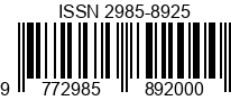Organisasi Peradilan Tata Usaha Negara Dalam Peradilan di Indonesia
DOI:
https://doi.org/10.54298/tarunalaw.v1i01.63Keywords:
Judiciary, Principles, Organizational Structure, state administrationAbstract
The judiciary is the executor of judicial power in charge of administering the judiciary in order to enforce law and justice based on Pancasila, with other tasks assigned to it based on the applicable law. In the framework of the rule of law, the existence of a state administrative court is essentially a logical consequence of the principle of government based on law (wetmatigheid van het bestuur). For the Indonesian people, the existence of this state administrative court is a court that is considered young, and contains provisions and procedural concepts that are universal. In state administrative law courts, of course, the principles of state administrative court procedures are needed which include the principle of activity, the principle of not knowing conversion, the principle of not knowing peace, the principle of presumtea iustaecausa, the principle of protection of the public interest.
References
ASTALOG.COM, Apa Yang Dimaksud Dengan Lembaga Pengadilan dan Peradilan? http://www.astalog.com/2142/apa-yang-dimaksud-dengan-lembaga-pengadilan-dan-peradilan.htm, diakses pada tanggal 19 Juli 2017, pukul 20.44 WIB.
Bisri, Cik Hasan. Peradilan Agama Di Indonesia. Jakarta: Rajawali Pers, 1996.
John Rawls, A Theory of Justice (revised edn, Oxford: OUP, 1999.
Harahap, Zairin. Hukum Acara Peradilan Tata Usaha Negara. Jakarta: PT Raja Grafindo Persada, 2010.
Mahkamah Agung Republik Indonesia. “Keputusan Ketua Mahkamah Agung Republik Indonesia Nomor : KMA/012/SK/III/1993 Tentang Organisasi Dan Tata Kerja Kepaniteraan Pengadilan Tata Usaha Negara (PTUN) Dan Pengadilan Tinggi Tata Usaha Negara (PT.TUN),” March 5, 1993.
———. “Pedoman Teknis Administrasi Dan Teknis Peradilan Tata Usaha Negara,” June 2007.
———. “Surat Sekretaris Mahkamah Agung RI Nomor : 907 /SEK/KP.01.2/6/2020 Tentang Penetapan Nomenklatur Jabatan Pelaksana,” n.d.
Marbun, S. F. Peradilan Tata Usaha Negara. Yogyakarta: Liberty, 2003.
Mertokusumo, Sudikno. Hukum Acara Perdata Indonesia. Yogyakarta: Liberty, 2009.
Mukhlas, Oyo Sunaryo. Perkembangan Peradilan Islam Dari Kahin Di Jazirah Arab Ke Peradilan Agama Di Indonesia, Ghalia Indonesia. Bogor: Ghalia Indonesia, 2011.
Mustafa, Bachsan. Sistem Hukum Indonesia Terpadu. Bandung: Citra Aditya Bakti, 2003.
Republik Indonesia. “Undang-Undang Nomor: 5 Tahun 1986 Jo. Undang-Undang Nomor: 9 Tahun 2004 Jo. Undang-Undang Nomor: 51 Tahun 2009,” n.d.
Sekretariat Jenderal Dewan Perwakilan Republik Indonesia. “Proses Pembahasan Rancangan Undang-Undang Republik Indonesia Tentang Peradilan Tata Usaha Negara,” 1986.
Tjandra, W. Riawan. Teori Dan Praktek Peradilan Tata Usaha Negara. Yogyakarta: Universitas Atma Jaya, 2010.
Thomas Nagel, The Problem of Global Justice, Philosophy and Public Affairs 33(2005).
Waldron, Jeremy. “Separation of Power In Thought and Practice?” Boston College Law Review 54, no. 433 (2013).
Downloads
Published
How to Cite
Issue
Section
License
Copyright (c) 2023 Zuman Malaka, Abdullah Isa

This work is licensed under a Creative Commons Attribution-ShareAlike 4.0 International License.
Authors who publish with this journal agree to the following terms:
- Authors retain copyright and grant the journal right of first publication with the work simultaneously licensed under a Creative Commons Attribution-ShareAlike that allows others to share the work with an acknowledgement of the work's authorship and initial publication in this journal.
- Authors are able to enter into separate, additional contractual arrangements for the non-exclusive distribution of the journal's published version of the work (e.g., post it to an institutional repository or publish it in a book), with an acknowledgement of its initial publication in this journal.
- Authors are permitted and encouraged to post their work online (e.g., in institutional repositories or on their website) prior to and during the submission process, as it can lead to productive exchanges, as well as earlier and greater citation of published work (See The Effect of Open Access).














